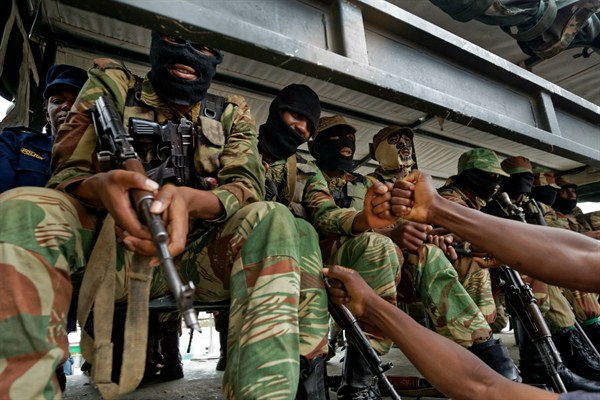Robert Mugabe became Zimbabwe’s prime minister in 1980 in the country’s first multiracial elections, after it finally won its independence from British rule. He has served as president or prime minister of the country ever since. Roughly 85 percent of Zimbabwe’s population has never known another leader. Despite his frail health and various opposition movements over the years, Mugabe has repeatedly found a way to hold on to power.
Until last week. Early Wednesday morning, shortly after tanks started appearing on the streets in and near Harare, members of the Zimbabwe Defense Forces went on the national broadcaster, ZBC, to declare that they were taking charge because “the situation in our country has moved to another level.” They announced they were targeting “criminals around” Mugabe and had placed him and his family under house arrest. Mugabe reportedly refused to resign and was even photographed shaking hands with the leader of the Zimbabwean military.
On Sunday, Mugabe’s own party, ZANU-PF, voted to expel both Mugabe and his wife, Grace, and declared that the president must resign by noon local time on Monday. That night, Mugabe gave a nationally televised address. Instead of resigning, though, as was widely expected, Mugabe laid out his plans for the future and pledged to preside over ZANU-PF’s annual congress in December. His announcement stunned many observers and showed that Mugabe still sees himself as the country’s leader. Monday’s deadline passed without a public statement from either Mugabe or ZANU-PF.

